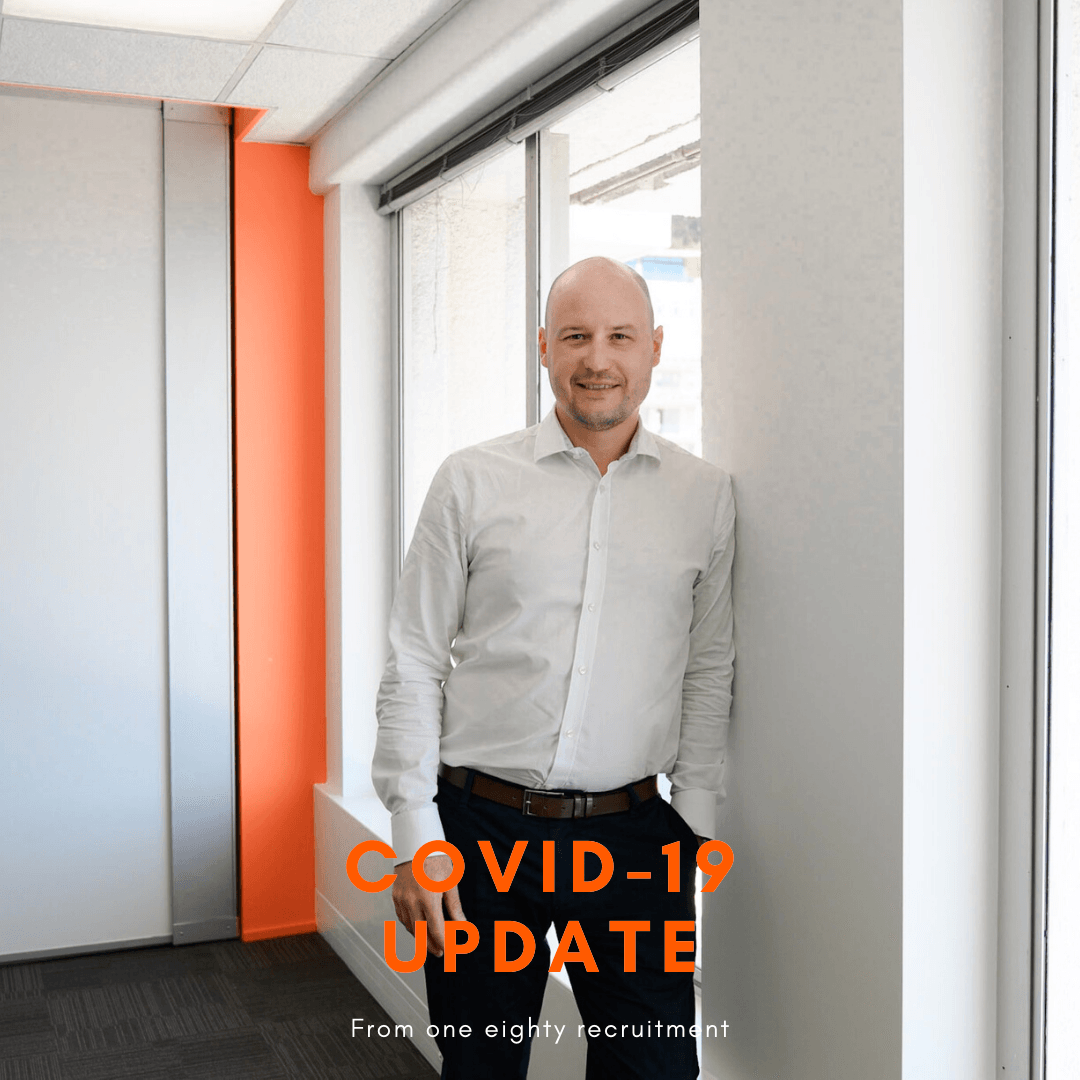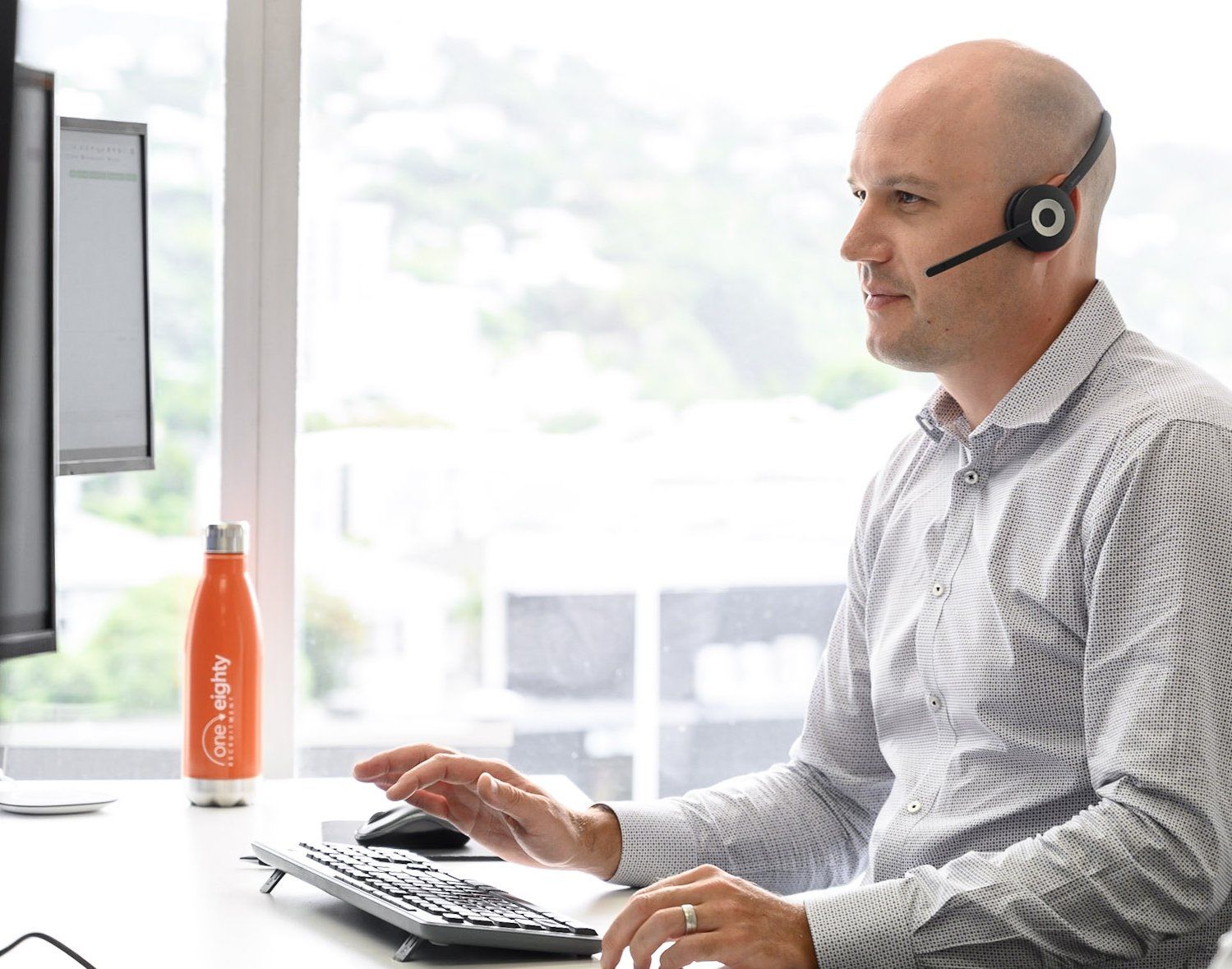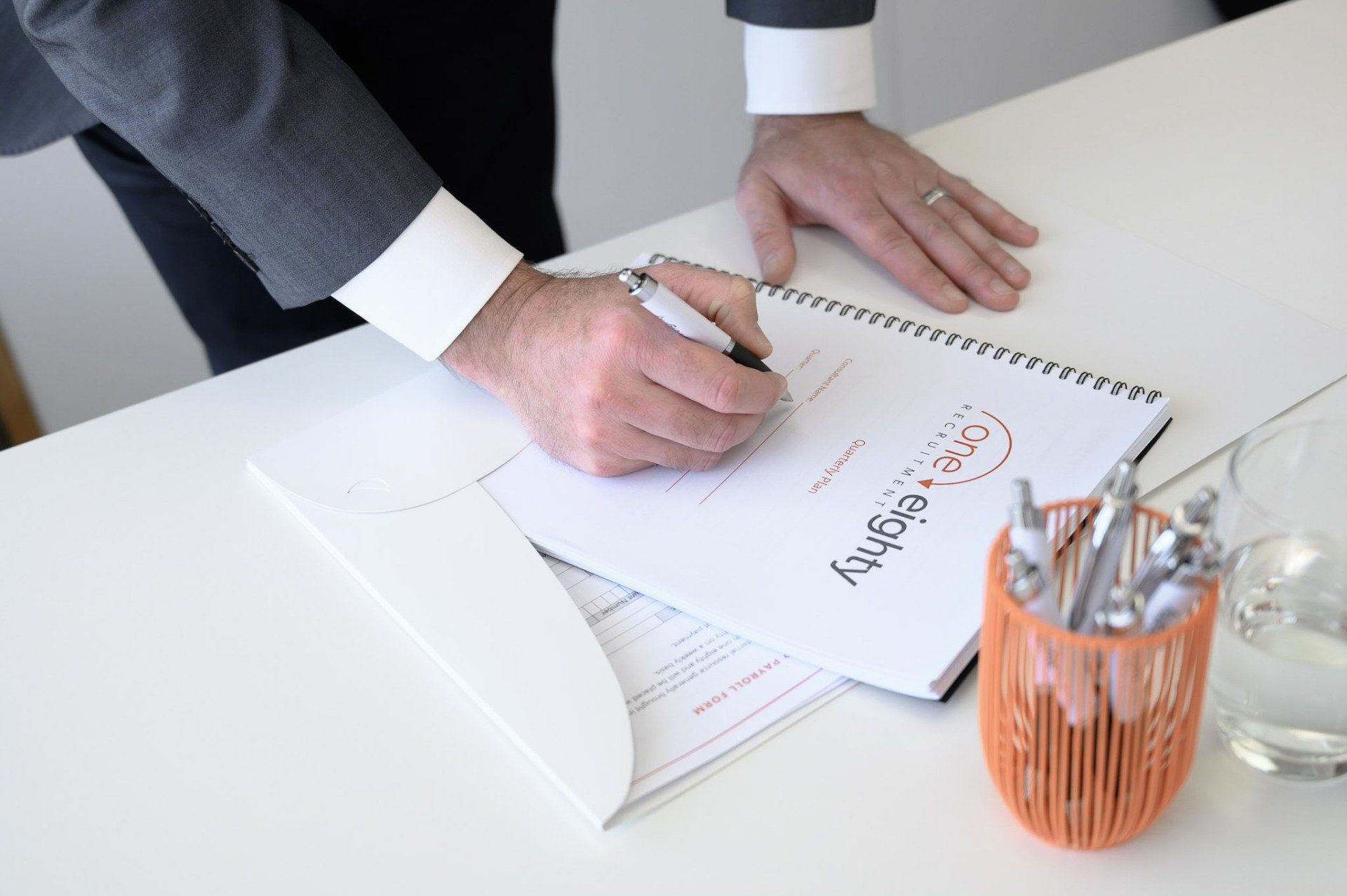Jobseekers

By ONE EIGHTY RECRUITMENT
•
June 15, 2021
At one eighty recruitment, we continuously talk about the current state of the market being ‘candidate short’. To put it simply, there are more job opportunities than there are available candidates, and employers are struggling to find the right people for roles — so, how does this affect you when job hunting? What do you need to be aware of when looking for a new role? You will have a choice As a candidate, you have lots of different options when it comes to applying for jobs and accepting offers. It’s important that you don’t feel as though you have to take the first role you are given. This is why it’s valuable to team up with a recruiter — we can discuss your needs, help you explore your different options, and then the choice is yours. We want to help you — and we’re more than happy to take your CV to potential employers, but the choice will always be yours. You can be picky about what you want Employers are continuously assessing what benefits they can offer in order to attract and retain staff. So, what exactly are you looking for in a job? If you’re after the flexibility that allows you to go and attend your child’s school play, then just say so. Or, perhaps you're only wanting to work a certain amount of hours each week. There will always be better opportunities out there and employers who will be willing to make things work for the right candidate with the right skills. You should be aware of recruitment best practice Partnering with a recruiter is one of the most valuable things you can do when job hunting, but it’s important to know about best practice. A recruiter needs to put themselves in your shoes. They need to know the ins and outs of every candidate in order to find a role that’s perfectly suited to their skills, their needs and their personal preferences. Because of this, you should be wary if a recruiter fails to ask you in-depth questions or doesn’t make a huge effort to get to know you. Lots of recruiters move too fast, leading to candidates feeling pressured to take on roles that aren’t a perfect fit — and that’s the last thing you want to happen. You will have a perfect match out there Working with a recruiter isn’t just about finding a job that matches your skills or qualifications — it’s about finding a perfect match from the job requirements to your potential new colleagues. one eighty has relationships spanning 15+ years in different industries. These long-standing relationships mean we know the finer details about each company we work with. For example, team fit is important — you may be looking for a family oriented company with many of their employees at the same life stage as you, or perhaps you’re of a younger demographic and would prefer to work with a young professional bunch? Whatever your preference, we will be able to find the perfect match for the next step in your career. It’s a tricky job market to navigate, but it’s one that one eighty recruitment are very familiar with. Thanks to our long-standing relationship with clients and our tailored recruitment approach, one eighty recruitment experts are still finding candidates the right roles that are suited to them. If you’re wanting help to find your next job, get in touch with us today.

By ONE EIGHTY RECRUITMENT
•
May 17, 2021
In the current job market there is a high demand for candidates in all of our sectors. The market is moving rapidly and employers are desperate to fill roles — but what does this mean for you as a job seeker and potential candidate? We’ve gathered some tips and advice from our recruitment experts to help you navigate job hunting during this time. Don't send your CV everywhere You might think that sending your CV to every potential employer will increase your chances of getting an interview, but it can actually have the opposite effect. As a candidate, you will get diluted — especially if you are not altering your CV to suit each job application. Because of this, the perception of who you are may also get misrepresented. Be prepared to move fast The job market is booming, but clients are still facing a number of challenges when it comes to recruiting the perfect candidate. The rapid speed of the market means that people aren’t moving for money, but rather for great opportunities that need filling ASAP. This hot demand means that candidates have no choice but to move quickly, so be prepared to make immediate changes if you have a successful job application. Uncover the real reason why you're moving jobs Although financial gain is a tempting reason to move jobs, you shouldn’t do it solely for money. It’s important to uncover the real reason why you want to move and instead find a role that's perfectly suited to your skillset and needs. Remember, you can always negotiate your salary if you are not happy with the employer’s offer. Going for a casual coffee is not an interview Although it’s not a formal interview, getting a casual coffee with a potential employer does create opportunities. If you decide to reach out for a chat, make sure you come prepared with questions to ask about them and their company so no time is wasted. It’s also important to be clear on the kind of roles you’re looking for even if there is no current opportunity at their company — New Zealand is a small place and it’s likely they could connect you with other people in the industry who may be able to help you. Dress to impress First impressions are everything, so it’s important that you make an effort to dress appropriately for an interview or meeting with a potential employer. Even if your line of work involves being on site all day, you need to make an effort to look tidy. Consider all types of work Contracting, temping, permanent or fixed term — there are lots of different opportunities for work that may interest you, and each come with their own benefits and requirements. Contracting is a popular recruitment solution for many employers as they can often bridge skill gaps and help meet short-term capacity demands. Temping is also a great option for candidates looking for shorter work commitments where you may be employed for a specific assignment for a set amount of time. The candidate short market means that employers are needing their job vacancies filled as soon as possible. If you’re looking for a new job opportunity but are unsure where to start, then get in touch with one eighty today. Our team of recruitment experts are he

By ONE EIGHTY RECRUITMENT
•
June 15, 2020
In recent times, with a slew of redundancies, business closures and as the effects of the COVID-19 pandemic hits our economy, we have seen New Zealand in a “candidate rich market”. A candidate rich market is where there are many candidates, for fewer jobs. Some may say this is advantageous for employers, however, this may not be the case. The recruitment process is an art, it is a skill, it is something that recruitment consultants develop through years of experience. In ‘normal times’ the recruitment process is involved, it takes time, and it requires systems to manage the process. A candidate rich market means more candidates to manage, and it may be easy to ‘miss’ great candidates. A bit like finding a needle in a haystack! For employers: Having a well managed process is imperative for company experience and branding. For example, formally rejecting candidates politely, and within a timely manner. Ensuring candidates that are put forward for the position, are kept up to date with the process as it progresses. Knowing what to look for when reading a resume. This is where the skill of a recruiter comes in – they’ve seen it all before and can generally ‘read between the lines’ and look for attributes specific to the role/job. Keeping the ‘pool’ small. Selecting 2-4 targeted candidates and going through a full process will avoid overwhelm. Be prepared to have multiple interviews with multiple candidates - drilling down and going through the process. Robust reference checking is imperative, and again, having recordings and systems to back up this process makes it more effective. A thorough process will mean a great hire at the end. It’s when steps and systems are missed, that the hiring process starts to fail. For job seekers: Having a targeted, professional resume is important and will provide a competitive edge. Is the resume and cover letter personalised to the job by including relevant skills etc. Being confident during interviews is important. LinkedIn have interview practice tools where job seekers can hone their skills for interview. Connect with recruiters, potential employers, and other people in your desired or current industry. Utlise social media for an edge – show potential employers your knowledge and skill set. Be open to opportunities and trust the process. A candidate rich market means everyone needs to put their best foot forward, follow ‘best practice’ and strive for the best outcome. If one eighty can help with providing insight to how the process or recruitment market is placed currently, please reach out.

By ONE EIGHTY RECRUITMENT AND YOLANDE HENNING
•
April 7, 2020
Email etiquette is an unspoken code. So, we've deciphered it for you... The Subject Line Keep it short and simple. Always use a clear and direct subject line which summarises or describes the content of the email. Never leave the subject line blank and rather use it to organise messages for people with overcrowded inboxes. The Email Body Use a professional salutation. For most emails “Hi” or “Hello” will suffice, but for more formal emails, use “Dear (insert name)”. Using the recipient’s name in the salutation is important and never shorten a person’s name unless they have given you permission to do so. Stick to the point and keep it short. Many professionals get inundated with emails daily, therefore it is important to keep your emails short and to the point. But don’t be too concise. Never give one-word responses as this can be considered rude and unprofessional. As far as possible, try to respond with full sentences. The Sign-Off / Signature Keep your closing simple. Adjust your closing to suit the intended recipient, but in a professional capacity it may be best to stick to “Best wishes” or “Kind regards”. Keep your signature simple, too. There is no need for coloured pictures or deep, meaningful quotes - just stick to your name and contact details. And, always include your phone number! Best Practices Know the “cc” rule and abide by it. The main recipients of an email who are expected to respond go in the “to” field, and the other recipients who are not expected to respond but were included as a courtesy or for their information, should go into the “cc” field. Double check that you are sending the email to the correct recipient. Make sure to pay careful attention when adding an email address in the “To” field as some computers automatically generate the last / most common email address from memory. Nothing is worse or more unprofessional than sending an email to the wrong person! Use the “Reply to All” function sparingly. Some recipients may get annoyed when they receive answers or correspondence that is not pertinent to them or doesn’t require them to respond. What are your email etiquette tips? Let us know in the comments below, we'd love to hear them.

By ONE EIGHTY RECRUITMENT
•
March 30, 2020
This blog post is being published during the COVID-19 outbreak in New Zealand. The current COVID-19 situation means working from home is the new norm for an unknown period. To ease the transition, we’ve put together five suggestions to make working from home better. Making Working from Home Better 1. Dress for Work It’s tempting to roll out of bed and straight to your new ‘working from home’ desk. But wearing work clothes is going to help mentally shift you into work mode. Get dressed for work, and once your working day is finished, get changed out of your work clothes. It’s going to feel great! 2. Prepare Your Day + Chunk Time The night before, plan your day and set boundaries for the day. Provided your employer is happy with it, there is the opportunity to make the day work better for you. Schedule in exercise, lunch in the sun, and a micro break in the afternoon. There is also the opportunity to chunk time. Chunk activities together with the same purpose i.e. Emails/Research/Meetings/Sales. This makes it easier to control your flow of work, and makes sure you’re able to handle interruptions when they come, and get back on task when you engage again. 3. Turn Off Notifications Interruptions = getting sucked into an unproductive vortex. Turn off notifications, and then set a reminder to check emails three times a day; start of the day. Just before lunch, and once more just before you finish your scheduled working day. Don’t get sucked into the email vortex that kills many hours for even the most productive of remote workers. The same applies for social media and phone notifications. 4. Move Your Body It’s important for mental health to move (and it’s been proven to boost immunity). Currently it’s ok to get out into nature and go for walks – that’s an option following physical distancing guidelines. Alternatively, there are hundreds of free yoga and workout videos available online to tap into. All this will help you be more productive, and also feel more balanced. 5. Set Up Online Events Set up virtual team lunches and Friday night drinks (BYO of course). Set up the camera and share general office chit chat during shared event times. Don’t forget to get together for the birthday cake (online of course) and keep human connection high. Do you have any other tips for working from home? The one eighty team have been working from home for a while now in preparation for the Level Four NZ Government imposed lock down which means we are fully set up to be able to engage and chat with you should you have any hiring or career points to discuss – we’d love to hear from you. Please feel free to contact us.

By ONE EIGHTY RECRUITMENT
•
March 30, 2020
This blog post is being published during the COVID-19 outbreak in New Zealand. A Message from GM Mike Westbury New Zealand is now in full lock-down, Alert Level 4. For one eighty recruitment this means a different way of working. We are lucky enough, because of our technology, to be able to easily work from home. Some businesses are facing challenges with the recruitment process. However, having said that, we are also seeing pro-active robust businesses continuing the hiring process online and taking the opportunity to interview the top talent that is currently available. We are incredibly grateful for front line professionals fighting against COVID-19. While the rest of us #stayhome please contact me should you wish to discuss the state of the market. Thank you for your continued support, however, it is time for us to support you. Stay safe. Mike Westbury, 021888907 | mike@oneeighty.co.nz General Manager and Founder. Capacity Overflow Assistance with Temps Some business are experiencing an overflow due to COVID-19. Temporary and permanent Professional Support Services are available to support your business during this time. These services might be high call volumes, processing applications or collecting data. These temps are able to work from home or support essential services. We can provide temps for: Call Centre Administration Data Entry Processing Temps are an easy option as one eighty takes care of Ministry of Justice, referencing, and all background checks. Temps are paid and employed through one eighty taking all the hard work out of employing. one eighty simply invoices your business directly. Meet Susannah Shackel. Experienced Bulk Recruiter. Susannah Profile picture2

By ONE EIGHTY RECRUITMENT
•
March 17, 2020
This blog post is being published during the COVID-19 outbreak. In consideration of the COVID-19 outbreak; at one eighty recruitment we are staying proactive and supportive to enable clients and candidates to continue to connect in the job market with health and safety in mind. One of the most important parts of finding a new job is having a great interview. Employers and recruiters are potentially opting for video interviews during this time on platforms such as Skype or Zoom. What is shocking is the amount of times these interviews can go south, because candidates are not prepared for this type of interview. So, without further ado, here are some tips to prepare for a remote/video interview: Top Tips for Skype and Video Interviews 1. Double Check Interview Time A lot of these video interviews happen across time zones, so you want to ensure that you have the correct time. Whether you’ve scheduled the interview with the employer directly, or with a recruiter – ALWAYS double check your time. 2. Test Technology The first thing to do when preparing for a Skype or video interview is make sure you’re comfortable and ready to use your technology (computer, mic, webcam, etc.) It’s not going to go well if you hop on a Skype call and the interviewer can’t hear you because your mic is muted. So make sure to test everything out before your Skype or video interview to make sure you’re comfortable with the technology and the settings are correct. You can do a “test run” with a friend or family member to be sure. If there are any technical issues, you want to know that before the interview. 3. Pick the Best Location. The last thing you want during your Skype interview or video interview is to have a family member or pet come running across the screen. So find a quiet, distraction-free room where you can shut the door and have relative silence, and nothing moving in the background. This could be a private meeting room, somewhere at home or a quiet, local café. 4. Do Your Homework This step is very important. You want to convey the message that you are interested, and that you are taking this opportunity seriously. Research is extremely important. If you have your interviewers name, check out their LinkedIn Profile. Check out the Company Website, LinkedIn Profile and any recent articles or news on them. Also do your homework when it comes to the position – go over the job description that was supplied. Read over your CV and see what aspects of your work overlaps with the job description, these are your strengths. Focus on the required skills and brush up on these technologies. If you made notes during your call with your recruiter go over those. 5. Dress for Success Dress appropriately for your interview in relation to what type of position you are interviewing for. In my opinion you can never go wrong with a power suit (or your equivalent of this). It not only looks great, but it makes the person wearing it feel confident and strong. If you don’t have a power suit, wear something professional, clean cut and comfortable 6. Prepare Questions and Answers Always remember that as much as an employer is interviewing you to see if you are a good match, you are also interviewing them for the same. Have questions prepared, we normally suggest about five or six. These questions could be related to the technical side of things, or career progression and educational allowances, think big. This will show your interest in the company 7. Don't Forget to Breathe, and Sleep Seeing as you have already prepared everything, take a moment, relax and get a good night of sleep. If you are into meditation, have a session when you wake in the morning to clear your mind and get you ready for the big moment. 8. Turn Off All Notifications The client may not be in the same room with you, but it will be easy to sense or see if your attention is diverted. This can come across as unprofessional, or disinterested. Turn your notifications off and put your phone on silent mode. Better yet – just turn your phone off. Where to from here? We wish you all the best with your Skype or video interview. Whether you are on the move, or just thinking about moving in the foreseeable future, we are always more than happy to help with a chat. Please feel free to contact us.

By ONE EIGHTY RECRUITMENT
•
March 3, 2020
So, it's time to take the plunge and you are looking for a new job? We asked Mike Westbury for recommendations of the first three things to action before embarking on a new job hunt. Check out the video below. As mentioned in point #1 of the video, at one eighty recruitment we've had hundreds of chats to help people articulate point #1 so please do reach out for a chat if we can help. Looking For A New Job? 1. Work out what you want Work out what you want in a job. Take some time to write down what you are hoping to achieve by changing jobs, is it a career change, a progression, lifestyle? It helps to have thought about these things before looking for a new job to ensure you are fulfilled in your new job. 2. Rewrite your CV. Rewrite your CV for the job you want, rather than the job you want. What are the skill sets, attributes and qualities required to be able to successfully do the job you wish to obtain? We have some CV writing resources here, or alternatively we are always happy to chat and assist with tips. 3. Connect. Connect with people and places where you want to work. Connect with people who are going to help you get to where you want to be. Perhaps even ask those people for a coffee and casual chat. The more you connect and get to know about your desired role, company or career, the better set you are to achieve your goals. Where to from here? Whether you are on the move, or just thinking about moving in the foreseeable future, we are always more than happy to help with a chat over a coffee or over the phone. Please feel free to contact us.

By Default Author
•
February 9, 2020
Independent Contractors are qualified professionals that operate as either limited liability companies or as sole traders. They will usually come in for a project, a period of cover or because their skillset is so hard to find that permanent employees do not exist. These contractors are usually available immediately and can slot straight into your existing workplace. Some bring their own tools – others will require the appropriate equipment such as a laptop or mobile phone. While you might pay more for a contractor in terms of a base rate, often they are more cost effective than employees. We asked General Manager Mike Westbury to provide his "key reasons why" engaging contractors is a good idea. Here are his thoughts: The key benefits Providing staffing flexibility Engaging contracting staff allows to meet short-term skill and capacity demands. Depending on the length of the contract, typical notice periods are 1-2 weeks, and you don’t have to specify a reason to end their assignment. Bridging skill gaps When you need a specific skill set for a short period of time to enable the completion of key projects. Generally, contractors will have experience in a niche area and have accomplished skills meaning they can hit the ground running. This ensures that you can meet your immediate staffing requirements without your projects falling behind schedule. Providing cost-efficient resource solutions Contractors are only paid for the hours worked and often for a short period of time. Only pay one monthly invoice – no ACC payments, PAYE, sick pay, annual leave, no requirement to include them in social events etc, no additional benefits, no ongoing training and no performance management. No employee requirements Contractors are not covered by the Employment Relations Act (2000) or the Holidays Act (2003) The one eighty solution one eighty provides recruitment services to the construction, engineering and property industries. We pride ourselves on providing tailor made recruitment solutions that are innovative in their approach and cost effective. We work with fantastic clients who have an entrepreneurial spirit and are open to growth and innovation. The service offered is specific to your needs at any one point in time. If you are looking to engage a contractor for a project or have a particular skillset required for a period of time, please contact us. We can give you advice around expected charge rates and backgrounds on suitable contractors. My details can be found here or more useful resources can be found throughout our website.

By ONE EIGHTY RECRUITMENT AND YOLANDE HENNING
•
February 6, 2020
Being assertive in the workplace can be a balancing act as you need to get your point across without being overbearing. A lack of assertiveness in the office can be a major contributing factor to poor performance. Assertive people are able to voice their thoughts and opinions without apologising OR dominating. Below are 5 key tips on how to be more assertive at work: 1. Say "NO" It allows you to select what you do. In this instance "how" you say no is what matters most - be direct but not aggressive. 2. Know your role This will allow you to focus on what you need to get done and not get distracted. 3. Anticipate problems Problems are part of your day and you can better manage them when you expect them to occur. 4.Value your time This relates to point 1 - your time is precious and valuable. Ensure your time is spent being productive. 5. Manage expectations When you have a clear goal, and everyone knows what you/they are working towards, you can better manage everyone's expectations. Being assertive at the workplace translates into being confident and not being afraid to share what you want or believe in. Assertiveness leads to positive, respectful and confident behaviour whilst also understanding the needs and feelings of one's colleagues. The main benefit of being assertive is that you will find mutually beneficial solutions to interpersonal issues and conflicts, which in turn means people are able to send the right signal and receive the right response.

